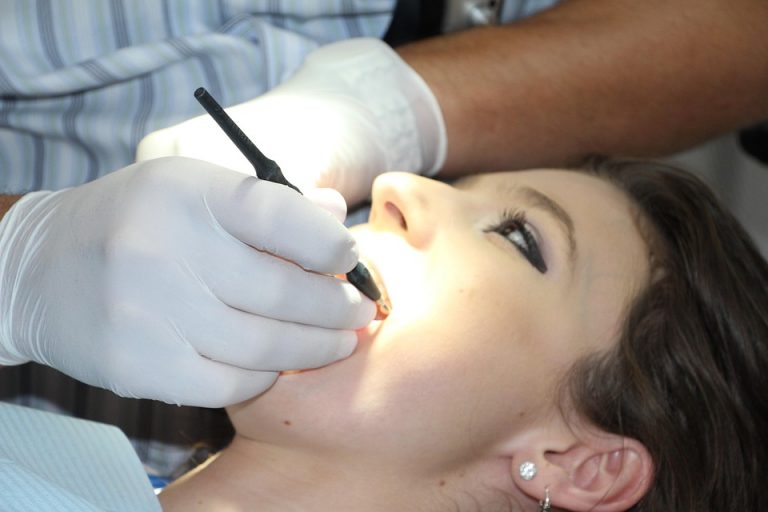Pet care tips are the small, powerful routines that keep your animal healthy, calm, and loved even when your calendar is full. They’re not a nicety — they’re the backbone of trust between you and the creature that curls up on your lap and waits for you every night.
You want advice that’s honest, practical, and quick to act on. These pet care tips do exactly that: short, effective moves that protect health, prevent problems, and make life easier for both of you. I’ll show you how to simplify feeding, vet care, exercise, and emergency readiness — and how to keep your sanity intact while you care for the one who depends on you.
Contents
- Pet Care Tips That Fit Your Life
- Pet Care Tips — Build A Realistic Daily Routine
- Pet Care Tips — Choose The Right Food And Portions
- Pet Care Tips — Make Exercise Count
- Pet Care Tips — Keep Up With Preventive Health Care
- Pet Care Tips — Learn Basic Grooming At Home
- Pet Care Tips — Train With Short, Consistent Sessions
- Pet Care Tips — Microchip, Tag, And Update Contacts
- Pet Care Tips — Pet-Proof Your Home Smartly
- Pet Care Tips — Have An Emergency Plan And Kit
- Pet Care Tips — Use Time-Saving Tools And Services
- Bottom Line
- FAQ
Pet Care Tips That Fit Your Life
Start with the truth: busy doesn’t mean neglect. It means smart systems. Set a routine that’s simple and sustainable. Experts at the American Veterinary Medical Association recommend consistent feeding and exercise habits to reduce behavioral issues and health risks, which is exactly what these pet care tips aim to deliver.
The next pages give you ten actionable changes. Each one saves time and prevents trouble. You’ll find science-backed guidance, real-life fixes, and steps you can put into practice this week.
Pet Care Tips — Build A Realistic Daily Routine
A realistic routine removes guilt. Feed, walk, play, and check one thing small — a quick ear check, a fur brush, or teeth rub — every day. This tiny habit keeps issues from becoming emergencies.
Make a short checklist and pin it where you’ll see it. A 10-minute morning and evening loop is enough to catch fleas, wounds, or dental tartar before they escalate.
Pet Care Tips — Choose The Right Food And Portions
Nutrition shapes behavior and longevity. Pick food based on age, activity level, and any medical needs. Speak with your veterinarian about portion control; Cornell Veterinary College provides useful guidelines for balanced meals.
Prep measured portions at the start of the week. Use a scale, not a guess. This cuts down on overeating and saves you time noodling over what to feed tonight.
Pet Care Tips — Make Exercise Count
Quality beats quantity. If you only have twenty minutes, choose a higher-engagement activity: interval fetch, scent work, or stair sprints. These activities burn energy fast and strengthen your bond.
If you work long hours, consider midday dog walkers or a trusted neighbor. The AVMA notes exercise reduces stress and destructive behavior, so this is one of the most time-effective investments you can make.
Pet Care Tips — Keep Up With Preventive Health Care
Preventive care is your best money- and time-saver. Vaccinations, parasite control, and annual or semi-annual vet checks catch small problems early. Vets emphasize that prevention lowers the risk of serious disease and shortens future recovery times.
Set reminders on your phone for vaccines and parasite treatments. Routine care eliminates frantic, expensive late-night trips.
Pet Care Tips — Learn Basic Grooming At Home
A quick brush once a day avoids mats, reduces shedding in the house, and lets you scan for lumps or wounds. Regular nail checks prevent uncomfortable snags and painful fractures.
Invest five to ten minutes nightly. Grooming is preventive pet care and a quiet bonding moment that calms an anxious animal and keeps problems from ballooning.
Pet Care Tips — Train With Short, Consistent Sessions
Ten minutes a day of focused training beats an hour once a week. Use positive reinforcement: treats, praise, and short games. Training reduces stress for you and your pet and makes everyday life smoother.
If you’re hesitant about technique, many reputable trainers offer short courses or videos aligned with modern, humane methods. Small, consistent wins create big behavior changes.
Pet Care Tips — Microchip, Tag, And Update Contacts
If your pet escapes, speed matters. Microchipping and a collar with an ID tag yield the most returns. Keep your contact info current — don’t wait until you change phones to update the chip registry.
Make this part of your moving checklist or your annual health review. It’s one of those pet care tips that feels small until it saves everything.
Pet Care Tips — Pet-Proof Your Home Smartly
Remove toxic plants, secure trash, and hide power cords. A single hour of pet-proofing reduces the chance of emergency vet visits. The ASPCA’s poison control resources are a great reference for what’s dangerous to pets.
Use cabinet latches, corner protectors, and baby gates where needed. Preventing exposure to hazards is faster and kinder than treating the consequences.
Pet Care Tips — Have An Emergency Plan And Kit
Life throws curveballs. A simple emergency kit includes copies of vaccination records, a recent photo, a first-aid kit, and three days’ worth of food and meds. Keep a list of nearby emergency vets and transport options.
Practice a quick evacuation route once. Having a plan reduces panic and gets you out the door faster if you need to leave in a hurry.
Pet Care Tips — Use Time-Saving Tools And Services
Modern life offers great helpers: automatic feeders, timed litter boxes, food subscription services, and reliable pet sitters. Use the tools that fit your budget and personality. They’re not a replacement for love, but they prevent neglect.
Try one tool for a month and evaluate. An automatic feeder can regulate portions; a subscription service removes the chore of grocery runs. Small investments buy consistency.
Quick Weekly Checklist
– Check food and portion supplies.
– Scan for bumps, cuts, or unusual lumps.
– Brush teeth or use dental wipes for a few minutes.
– Trim nails if needed or schedule a groomer.
– Refill parasite prevention if due.
This checklist takes under 20 minutes weekly. It keeps small issues from stealing your time later.
Practicality means building systems. If you schedule pet duties into your calendar like any appointment, they happen. If you make pet care negotiable, it’s what slips first. Treat it as non-negotiable. Your animal notices reliability.
Science backs this approach. Studies published in veterinary journals show that routine preventive care reduces long-term costs and improves quality of life. Behavior experts agree that consistent exercise and training reduce anxiety and dangerous behaviors. I’ve seen this in homes from Manhattan walk-ups to country farms — habits win.
Make the vet part of your team, not a last resort. Ask your veterinarian about microchipping, nutrition tailored to your pet’s age, and realistic exercise plans. Many clinics offer telehealth check-ins that save time for both of you.
When you hire help, vet them like you would a house sitter. Ask for references, insurance, and cancellation policies. Good sitters and walkers act like partners who reinforce your training — and they give you time back.
If money is tight, prioritize basics: clean water, a safe place to sleep, parasite prevention, and one healthy meal per day. Many shelters and charities offer discounted vaccines, spay/neuter clinics, and pet food banks. Asking for help is a strong choice — it keeps your pet safe.
Keep records in one place — a folder or an app — so vaccinations, medications, and phone numbers are always available. When you’re rushed, quick access to information is priceless.
Bottom Line
These pet care tips are straightforward because your life is busy and your pet deserves clear wins. Small, consistent actions — daily checks, measured meals, short training sessions, and timely vet care — prevent emergencies, save money, and deepen the bond you share. Start with one change this week, and build from there. You’ll be surprised how much calm a little routine brings.
You’ve got this. Your pet is counting on reliable love, and that’s something you can give even on the busiest days.
FAQ
How often should I feed my pet?
Feed based on age and activity: puppies and kittens need several small meals a day, while most adult dogs and cats do well on two. Use portion guidance from your food brand and confirm amounts with your veterinarian.
What’s the easiest way to remember vaccinations and meds?
Set calendar reminders and keep a single vaccination record either in an app or a paper folder. Many clinics will text reminders if you ask, and registries for microchips often send alerts about updates.
Can I train my pet if I’m not home often?
Yes. Short, frequent sessions are best. Send toys that encourage independent play or schedule a trainer for a few focused lessons. Consistency is what matters more than duration.
What should be in a basic pet first-aid kit?
Include gauze, adhesive tape, a digital thermometer, saline for flushing wounds, and the number for your regular vet and an emergency clinic. Keep a recent photo and copies of medical records as well.
Below is a list of reputable sources referenced while compiling these tips.
References
– The Centers for Disease Control and Prevention provides guidance on healthy interactions between people and pets and resources to reduce disease risk (https://www.cdc.gov/healthypets/index.html).
– The American Veterinary Medical Association offers information on preventive care, nutrition, and behavior for companion animals (https://www.avma.org/resources/pet-owners).
– The ASPCA hosts practical resources on pet-proofing, toxic foods, and general pet care that are useful for quick household checks (https://www.aspca.org/pet-care).
– Cornell University College of Veterinary Medicine provides expert guidance on nutrition and the role of diet in pet health (https://www.vet.cornell.edu/).








